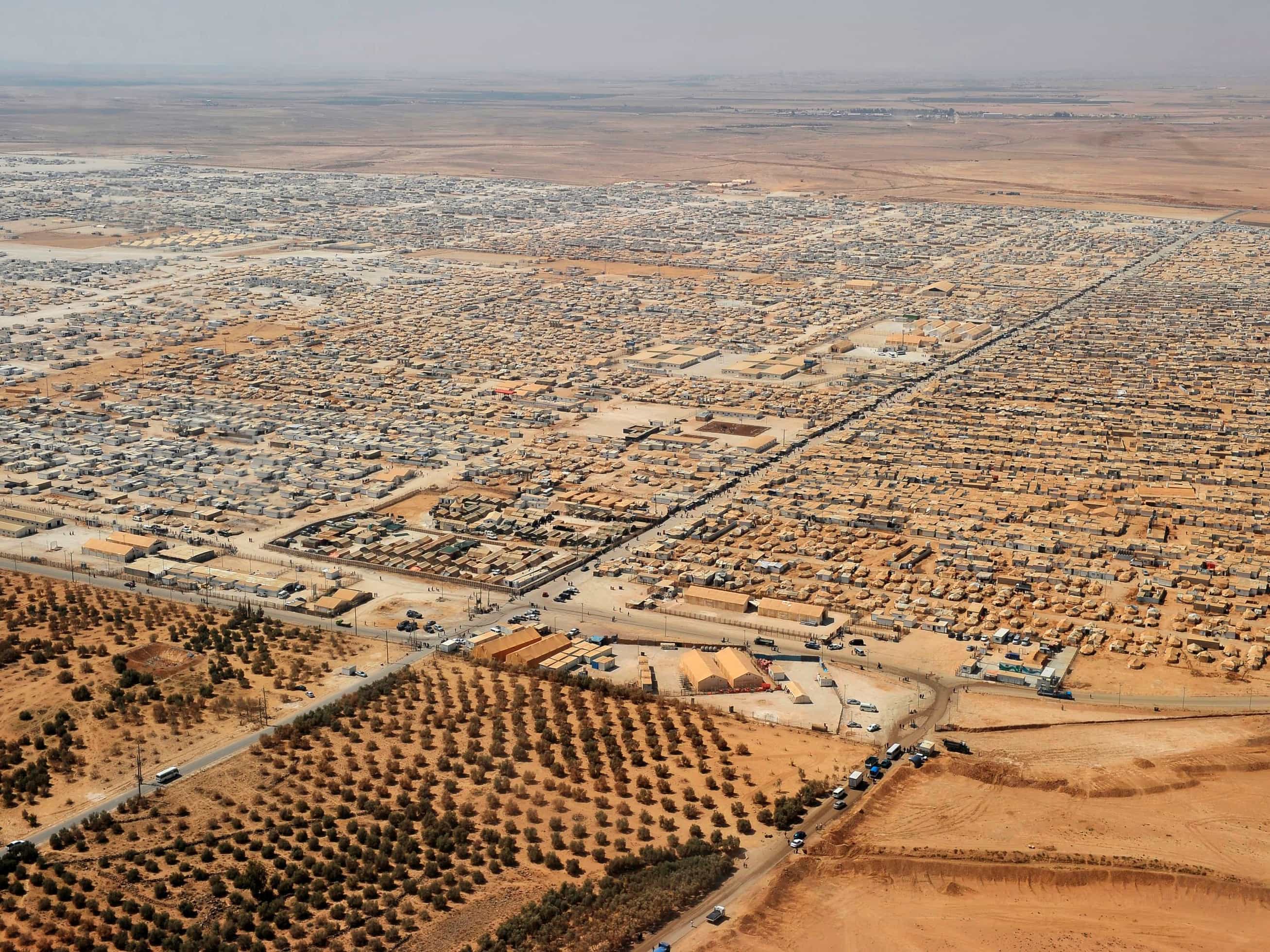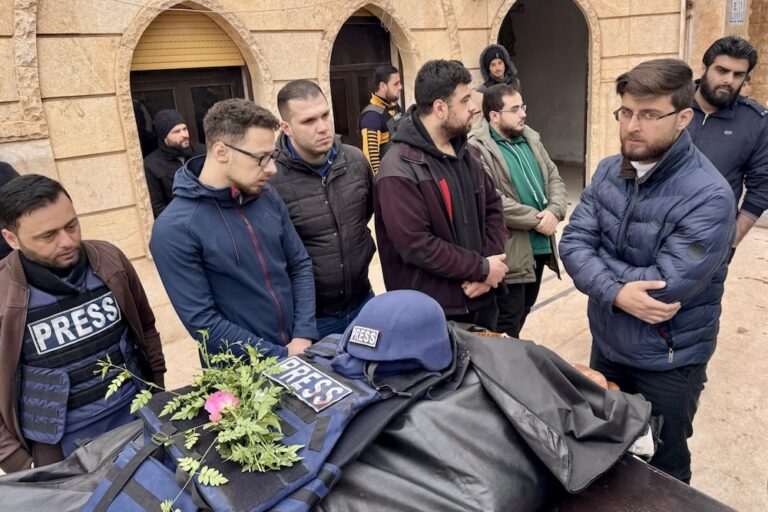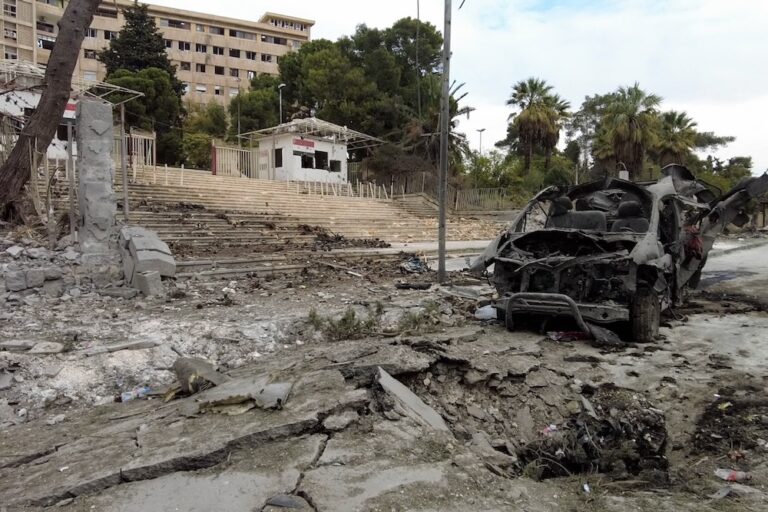PEN International is campaigning for the release of writers and journalists who are among those held in Syria, some in incommunicado detention.
The news that people continue to flood out of Syria at a rate of 6,000 a day, fleeing the violence generated by the on-going civil war is no surprise. And the international community clearly has a responsibility to help neighbouring countries bear the burden of helping so many refugees who arrive seeking food, shelter, health services and education for their children. Among those fleeing are writers and journalists – as might be expected, the number of those seeking assistance from PEN has skyrocketed in recent months.
What is tragic is that the horrors which are unfolding on a daily basis stem from a longstanding situation where freedom of expression was denied in Syria. For years, people were afraid to speak their minds, fearful of the long arm of the state’s myriad intelligence services which penetrated every community and every street. And when people in Syria finally took to the streets in 2011 in peaceful protests to demand their rights, inspired by events in Tunisia and Egypt, they met a wall of repression which has led inexorably to the conflict we see today.
Although many are able to escape the carnage, we should also not forget those who are still in Syria, in the dungeons of the state, exposed to forms of torture which chill the blood when you read about them – human rights organizations have documented the names of well over 1,000 individuals who have died in Syrian prisons since the start of the protests in March 2011, compared to an annual average rate of 5-10 previously. Many are subjected to enforced disappearance – their families are unable to find out any information about their loved ones whereabouts and don’t know if they are alive or dead. Nor is the state the only culprit behind attacks on freedom of expression – for example, several journalists and citizen journalists are reported to have been detained by armed opposition groups in Syria, among them Shaaban al-Hassan, a journalist with al-Masar al-Hurr. He was reportedly held for four days by an unofficial shari’a court in Aleppo in May 2013 in connection with an interview with a prisoner he published.
PEN International is campaigning for the release of writers and journalists who are among those held. For example, nothing has been heard of citizen journalist Noura al-Jizawi who wrote for the opposition newspaper Syrian Hurriyat, since her arrest in Damascus on 28 March 2012. Similarly, the family of Shibal Ibrahim, a journalist, writer and member of the Union of Young Kurdish Coordinating Committees which organizes peaceful protests, has not seen or heard from him since his arrest on 22 September 2011. Mazen Darwish, the Head of the Syrian Center for Media and Freedom of Expression, and his colleagues Hussein Ghareer, and Hani Zetani, remain held so far without trial since their arrest on 16 February 2012 in connection with their activities in the Center. Zaki Cordillo, a playwright and leading figure of the Puppet Theatre (Masrah Azil), remains in incommunicado detention since his arrest in Damascus in August 2013, along with his son Mihyar, an actor. Palestinian refugees in Syria have also sometimes been targeted – Ali Al Shihabi, a Palestinian political analyst, author and blogger was reportedly arrested on 12 December 2012 and remains held in incommunicado detention in an unknown location.
Nor have those who seek to defend others’ rights fared better – PEN is calling for the immediate and unconditional release of lawyer Khalil Ma’touq, who has written and published articles and legal studies in several newspapers and websites such as Al Hiwar Al Mutamiden. Despite a lack of information from officials about his fate and whereabouts since his arrest at a checkpoint on 2 October 2012, he is believed to be in detention and in extremely poor health.
Individuals reporting on the conflict are also at risk of attack and death. Some are caught in the cross-fire, but others appear to have been deliberately targeted, either by government forces or by armed opposition groups although it is often difficult to establish exactly who was responsible. For example, Suhaib Dib, a secondary school student who had begun writing as a citizen journalist was killed in an apparently targeted attack by security forces in Al Meliha suburb of Damascus on 4 July 2012. Naji Asad, an editor for the state-run newspaper Tishreen, was killed, reportedly by a sniper, while on his way to work on 4 December 2012. Government media blamed opposition forces.
Journalists and writers who have not taken up arms are civilians and are protected under the Geneva Conventions – the international laws of war. PEN International is continuing to call on all parties to the conflict to respect the right to freedom of expression, and to do all within their power to protect civilians from harm. Additionally, anyone in Syria held solely for the peaceful exercise of their right to freedom of opinion and expression should be released immediately and unconditionally – whoever is holding them.
By Ann Harrison, Programme Director, Writers in Prison Committee



